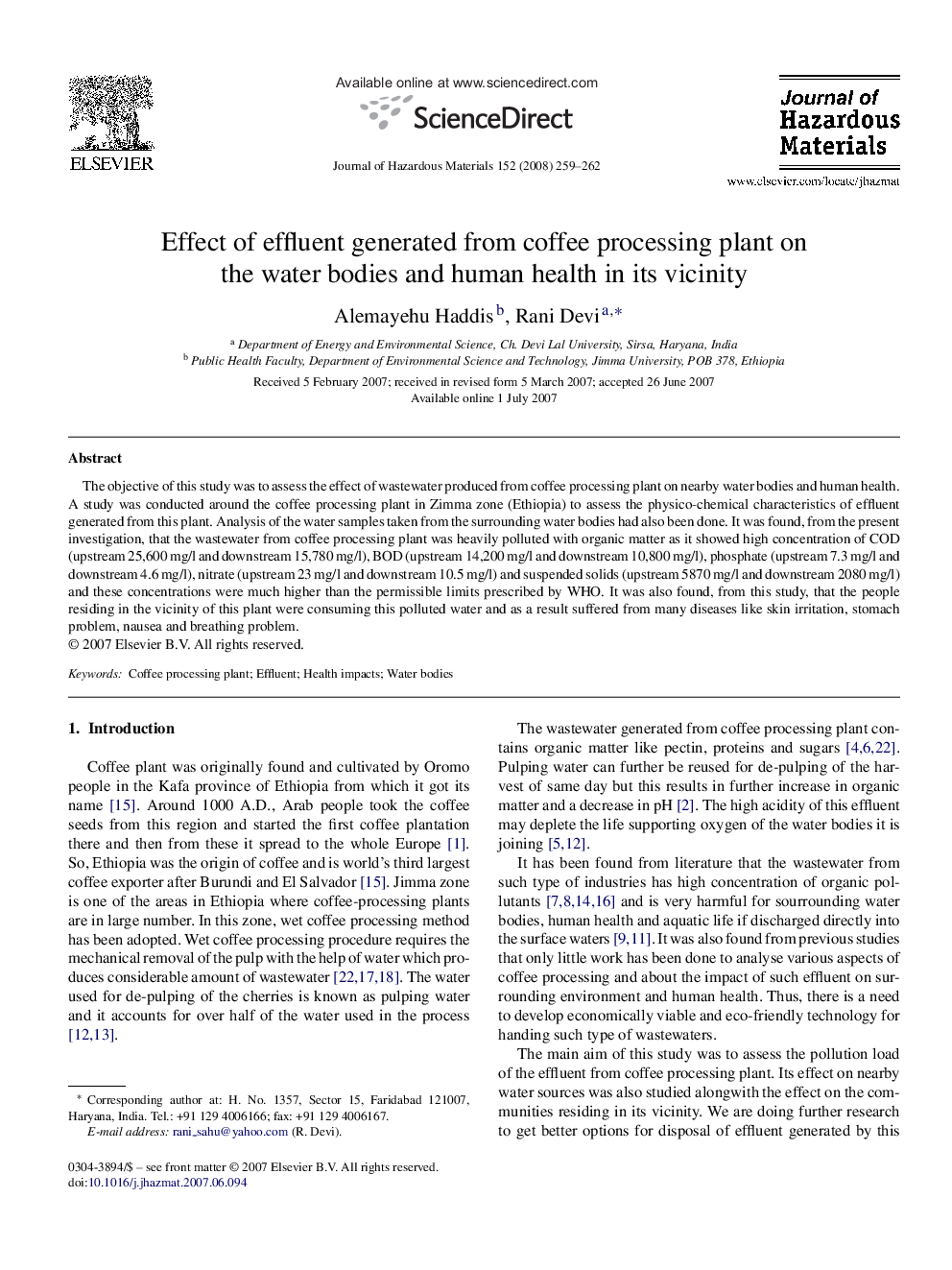| Article ID | Journal | Published Year | Pages | File Type |
|---|---|---|---|---|
| 583799 | Journal of Hazardous Materials | 2008 | 4 Pages |
Abstract
The objective of this study was to assess the effect of wastewater produced from coffee processing plant on nearby water bodies and human health. A study was conducted around the coffee processing plant in Zimma zone (Ethiopia) to assess the physico-chemical characteristics of effluent generated from this plant. Analysis of the water samples taken from the surrounding water bodies had also been done. It was found, from the present investigation, that the wastewater from coffee processing plant was heavily polluted with organic matter as it showed high concentration of COD (upstream 25,600Â mg/l and downstream 15,780Â mg/l), BOD (upstream 14,200Â mg/l and downstream 10,800Â mg/l), phosphate (upstream 7.3Â mg/l and downstream 4.6Â mg/l), nitrate (upstream 23Â mg/l and downstream 10.5Â mg/l) and suspended solids (upstream 5870Â mg/l and downstream 2080Â mg/l) and these concentrations were much higher than the permissible limits prescribed by WHO. It was also found, from this study, that the people residing in the vicinity of this plant were consuming this polluted water and as a result suffered from many diseases like skin irritation, stomach problem, nausea and breathing problem.
Keywords
Related Topics
Physical Sciences and Engineering
Chemical Engineering
Chemical Health and Safety
Authors
Alemayehu Haddis, Rani Devi,
